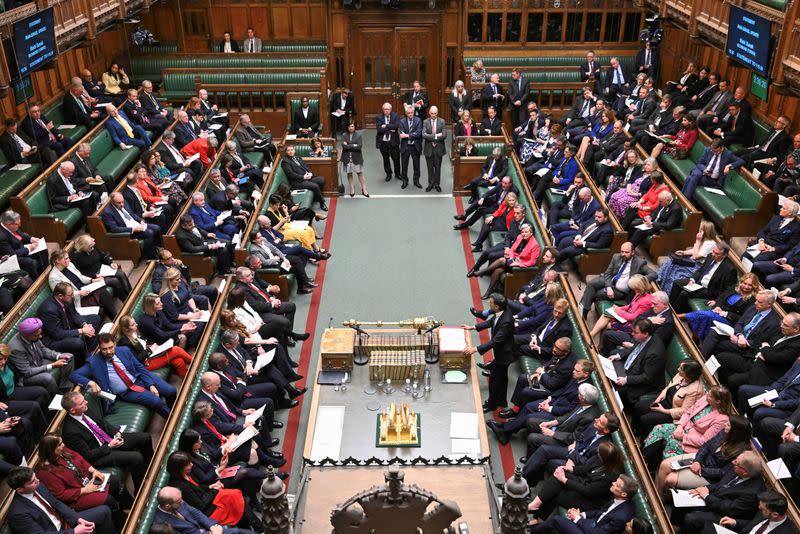UK parties have 'conspiracy of silence' over post-election budget challenges, think tank says

By David Milliken
LONDON (Reuters) -Both Keir Starmer's Labour Party and Prime Minister Rishi Sunak's Conservatives are maintaining a "conspiracy of silence" on the scale of budget challenges which will face Britain's next government, a leading think tank said on Monday.
The non-partisan Institute for Fiscal Studies said neither party had made clear how they would implement the 10-20 billion pounds ($12.7 billion-$25.3 billion) of spending cuts implied by March's annual budget, or if they would raise taxes instead.
It said a 50-billion-pound surge in annual debt interest payments, rising health and defence spending, the cost of cutting greenhouse gas emissions and the effects of an ageing population would be big headwinds for whoever is in power after July 4's election.
"These raw facts are largely ignored by the two main parties in their manifestos," IFS Director Paul Johnson said.
Unless growth turned out to be unexpectedly strong, the party that formed next government would either have to raise taxes more than it had said in its manifesto, cut some areas of public spending or allow the national debt to keep rising.
"The 'conspiracy of silence' about all of this has been maintained," Johnson said.
The IFS said the next government's fiscal leeway was very sensitive to any revisions to the growth outlook by Britain's Office for Budget Responsibility.
A 0.5 percentage point upward revision to the OBR's growth forecast - taking average growth back to where it was before the 2008 financial crisis - would bring another 30 billion pounds of revenue.
But an equivalent downward revision - which the IFS views as more likely as it would bring OBR forecasts more in line with those of other economists - would create a 30-billion-pound gap - equivalent to just over 1,000 pounds per household.
Since the last election in 2019, taxation as a share of gross domestic product has risen to its highest since just after World War Two, largely because the government has not raised tax thresholds in line with inflation.
Both parties have ruled out raising the rate of all Britain's main taxes, including income tax and value-added tax.
"Taken at face value, Labour's promise of 'no tax increases on working people' rules out essentially all tax rises. There is no tax paid exclusively by those who don't work. Who knows what this pledge is really supposed to mean?" Johnson said.
($1 = 0.7899 pounds)
(Reporting by David Milliken; editing by Sarah Young and Christina Fincher)

 Yahoo News
Yahoo News 
